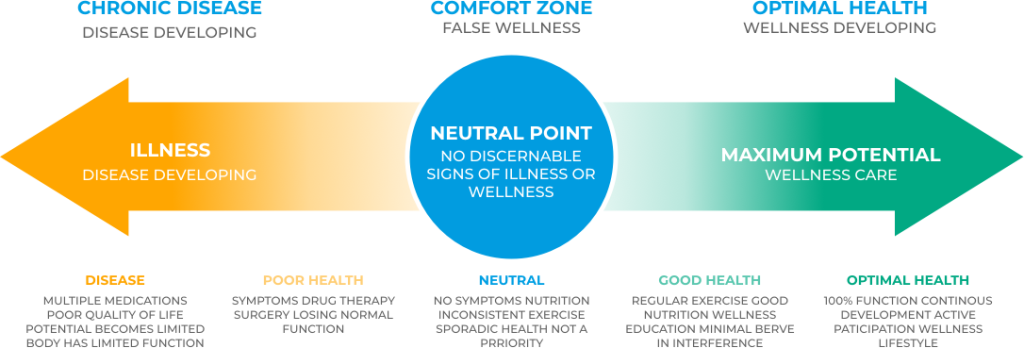Weight Management
- Personalised Care: Tailor-Made Programmes Designed to Meet Your Unique Health Goals
- Expert Guidance: Professional Team Of Dietitians & Nutritional Therapists
- Comprehensive Support: Holistic Approach Integrating Nutrition, Exercise & Psychological Support
CELEBRATING 20 YEARS IN PROVIDING EXCELLENT HEALTHCARE
Health Injection
If you’re not unwell, but you know you’re nowhere near your best, this Health Injection offers a focused reset. Across four sessions, your coach will help you upgrade the key pillars of your health – sleep, movement, nutrition and mindset – in ways that fit into your life.
Together you’ll:
- Clarify what ‘better health’ actually looks like for you in 2026
- Optimise sleep routines, daily movement and food choices
- Put in place realistic habits you can actually maintain
- Build accountability so your good intentions turn into lasting change
Package investment: £600
What’s Included: 4 health-coaching sessions
WEIGHT MANAGEMENT
Transform Your Health: Achieve Lasting Wellness
Weight management and weight loss may seem like similar concepts, but they encompass distinct goals and approaches. While weight loss focuses on reducing body weight, weight management is about maintaining a healthy weight over time, incorporating lifestyle changes, and achieving long-term stability and overall wellness.
People choose our weight management service because it helps them achieve and maintain a healthy weight. This enhances their overall health and reduces disease risk. Our personalised support is tailored to your body type, nutritional needs, preferences and lifestyle. We focus on sustainable results with long-term success by building positive, lasting habits.

RENEWED PHYSICAL HEALTH
Experienced team of dietitians, nutritional therapists, and functional medicine practitioners to develop a plan that suits your unique metabolic and lifestyle needs.

HOLISTIC APPROACH
Addressing nutritional, emotional, psychological, and medical factors that affect your health and weight.

FLEXIBLE PLANS
Adaptable strategies that fit seamlessly into your life, helping you make smart choices both at home and on the go.

COMPREHENSIVE SUPPORT
Additional support from our therapy and medical teams when needed for a well-rounded approach to weight management.
Our expertly designed weight management programmes are tailored to meet your individual needs and goals, focusing on improving your health and wellbeing.
Begin your journey towards a healthier, more balanced life with the guidance and support of our team. Contact us today to learn how you can transform your approach to weight management and achieve sustainable, life-enhancing results.
TAKE CONTROL OF YOUR HEALTH TODAY – WE ARE HERE TO HELP
Struggling with weight and eating challenges? You don’t have to face it alone.
Our compassionate team is ready to listen, support, and guide you toward a healthier, happier life.
Book your free call now and take the first step.
OUR FEES
Our initial consultation is free of charge, with health coaching sessions starting from £90, therapy sessions at £120, and nutrition consultations from £200.
Health packages and multi-session bundles available – we’ll guide you to the most suitable option when we speak.
Amani – Does Her Story Resonate With You?
Amani, a successful entrepreneur, divides her time between her bustling business ventures in London and Dubai, while also raising two young children.
Life on the move is exciting, but inherently stressful, leaving her feeling perpetually exhausted.
Recently diagnosed with poor thyroid function and on the cusp of pre-diabetes, Amani faces health challenges that aren’t apparent at a glance—she isn’t overweight. Yet her concerns are rooted deeply in the fluctuating energy levels and the increasing frequency of sugar cravings that threaten her overall well-being.
Despite her lean figure, she recognizes the need to prioritize health to sustain her demanding lifestyle. Her quest for a weight management service isn’t driven by a desire to lose weight, but rather to find a holistic solution that considers her hectic schedule, medical conditions, and nutritional needs.
Upon seeking a weight management service, Amani focuses on finding one that provides a comprehensive approach tailored specifically to her unique circumstances. Understanding her goals beyond weight loss, the chosen service offered a personalised program that centers on enhancing overall wellness and metabolic health.
This involved crafting a structured eating plan that took her thyroid support needs and pre-diabetic status into account, aiming to stabilise her blood sugar and curb cravings for sweets. Additionally, the service included regular consultations with a healthcare professional proficient in managing thyroid issues, ensuring that Amani received the specialized nutritional guidance needed for her condition.
As a result, Amani found herself gaining energy, experiencing fewer cravings, and having more peace of mind about her health, enabling her to juggle the demanding aspects of her life more effectively.
Weight Management Benefits
People seek out our weight management services for a variety of reasons, which reinforces the need for our programmes to be tailored to the needs of our clients.
Health Concerns – Many people are motivated by the need to address health issues such as diabetes, cardiovascular diseases, hypertension, or high cholesterol, where weight loss can play a crucial role in managing or preventing these conditions.
Body Image & Self-Esteem – Individuals often seek weight management services to improve their body image, increase their confidence, and boost their self-esteem.
Sustainable Lifestyle Changes – There is a desire to learn healthy habits and sustainable lifestyle changes rather than quick fixes or fad diets.
Professional Support & Guidance – People look for expert advice from nutritionists, dietitians, and fitness professionals to receive personalised and credible guidance.
Post-Pregnancy Weight Loss – New mothers often seek support to regain their pre-pregnancy weight or to manage their postpartum health and fitness.
Support System – Many value having a supportive community or accountability partner to help them stay motivated and on track with their goals.
Plateau Breaking – Individuals often reach out when they’ve hit a plateau in their weight loss journey and seek expert assistance to overcome it.
Time Efficiency – Some are looking for structured programmes that fit into their busy schedules, offering efficient and effective solutions without requiring extensive time commitments.
Event Preparation – People often want to manage their weight in preparation for significant life events such as weddings, reunions, or vacations.
Mental Health Benefits – There is a growing recognition of the link between physical health and mental well-being, prompting individuals to seek weight management as a way to improve their overall mental health.
Age-Related Concerns – As people age, metabolism can slow and body composition can change; weight management services are often enlisted to address these concerns.
Medical Advice – People who receive advice from their healthcare providers often seek professional weight management programs as an essential part of their treatment plan.
Our team listens carefully to your personal motivations, so we can tailor our weight management services to help you achieve your health and wellness goals.
Do I Need Weight Management?
Unsure if our weight management services are for you? Take our quiz, and if you answer ‘yes’ to any of the questions below, then our services can help.
- What is enough food for my body size?
- How much do I need to eat if I am exercising and want to lose weight?
- What is the best food to eat at breakfast?
- How can I eat, have energy and still lose weight?
- Which foods promote fullness?
- How can I eat right for my medical condition?
- How much weight do I need to lose to change my symptoms?
- What is the best food to eat before going to the gym?
- How can I eat to gain weight sensibly?
- What can I eat to decrease my cravings and bingeing episodes?
- How can I balance my macronutrients (proteins, fats, and carbohydrates) for optimal health?
- What are some simple meal prep tips to stick to a healthy eating plan?
- How can I identify and overcome emotional eating triggers?
- What role does hydration play in weight management?
- How can I incorporate more fibre into my diet for better digestion?
- What are some effective strategies for dining out while maintaining a healthy diet?
- How can I adjust my portion sizes to better match my nutritional needs?
- What are some practical tips for managing a busy lifestyle while sticking to a meal plan?
- How can I improve my relationship with food and view eating as a positive experience?
- What are some nutritious snack options to keep me satisfied between meals?
At WeightMatters, our weight management programme can provide you with guidelines and principles, tools and techniques, to help you structure your eating and exercise and find optimal health, weight, wellness and happiness.

MEET SUE, CLINICAL DIRECTOR & HEAD OF NUTRITION
Sue shares the benefits of working with our expert nutrition team at WeightMatters
WEIGHT MANAGEMENT
At WeightMatters, our weight management programme, your journey to optimal health, is guided by our exceptional nutrition team, comprising experienced dietitians, nutritional therapists, and functional medicine practitioners.
This team collaborates closely with our dedicated therapy and medical teams, ensuring that you receive comprehensive support every step of the way. With our personalised approach, you’ll be empowered to achieve your weight and health goals effectively and sustainably.

NUTRITION
Personalised dietary assessments, meal planning, health management and ongoing nutritional support tailored to your unique needs and lifestyle.

THERAPY
Provides counselling and behavioral guidance, helping you address emotional and psychological factors that may impact your weight management journey.

MEDICAL
Delivers medical evaluations and interventional support when necessary, focusing on underlying health issues that could affect your progress.
The strength of our programme lies in our multidisciplinary team (MDT) approach. By combining the expertise of our nutrition, therapy, and medical professionals, we can provide a well-rounded and integrated plan to address all aspects of your weight management.
This collaborative approach ensures that all facets of your health are considered, offering you the best chance of success in achieving lasting weight and health improvements.
We understand that taking the first step in a weight management journey can be daunting, but you are not alone. Our supportive team is here to guide you, providing encouragement and expertise to keep you motivated along the way.
Reach out to our friendly client services team today to learn more and start your journey towards a healthier you.
It’s Time To Heal.
Nutrition
Our weight management programme is comprehensive and tailored to your individual needs. Here are some interventions our nutrition team may implement to support you:
1. Personalised Nutritional Assessment
Conduct a thorough review of the client’s current dietary habits, lifestyle, medical history, and metabolic profile. Use this information to design a customised nutrition plan that aligns with their unique metabolic needs and weight management goals.
2. Tailored Meal Planning
Develop meal plans that reflect the client’s dietary preferences, cultural practices, and nutritional requirements. Incorporate balanced portions across macronutrients (carbohydrates, proteins, and fats) and prioritise whole, minimally processed foods.
3. Behavioral Change Support
Implement behaviour modification strategies, such as mindful eating practices, portion control techniques, and strategies for overcoming emotional eating, to facilitate long-term change and commitment.
4. Nutritional Education
Provide educational sessions to empower the client with knowledge about nutrient-dense foods, reading food labels, understanding portion sizes, and the importance of timing and frequency of meals.
5. Functional Medicine Evaluation
If applicable, conduct functional medicine tests to identify potential food sensitivities, nutritional deficiencies, or hormonal imbalances that could be impacting weight management and address these through targeted nutritional interventions.
6. Supplementation Guidance
Recommend evidence-based supplementation when necessary to support the client’s nutritional status, such as omega-3 fatty acids for inflammation or probiotics for gut health, always considering individual health conditions and goals.
7. Metabolic Optimisation
Offer strategies to improve metabolic health, such as incorporating sufficient protein in meals to preserve lean muscle mass during weight loss, or managing blood glucose levels with complex carbohydrates and fibre-rich foods.
8. Continuous Monitoring & Feedback
Schedule regular follow-ups to monitor the client’s progress and make necessary adjustments to their nutrition plan. Use food diaries or mobile apps to facilitate ongoing communication and feedback.
9. Collaboration and Referral
Work in partnership with the therapy team to address psychological barriers to weight loss and the medical team to manage any underlying health conditions that could influence dietary choices and needs.
10. Support Systems & Accountability
Create a supportive environment by encouraging group sessions or workshops, connecting clients with support groups, and motivating them to set realistic, achievable goals that foster a sense of accountability and success.
Together, these interventions create a robust framework designed to support our clients not just in achieving their weight management objectives, but in maintaining improved health and wellbeing long-term.
Therapy
The therapy team at WeightMatters includes health psychologists, exercise psychologists,counsellors, and psychotherapists.
They can play a crucial role in supporting clients in a weight management programme by addressing the psychological and emotional aspects of weight management. Here are some interventions they might utilise:
1. Cognitive Behavioral Therapy (CBT)
CBT helps clients identify and change negative thought patterns and behaviors that contribute to unhealthy eating habits. This therapeutic approach can aid in managing stress, reducing emotional eating, and overcoming self-sabotage by teaching clients to develop healthier coping mechanisms.
2. Motivational Interviewing
Motivational interviewing techniques engage clients in a collaborative conversation about change. This person-centered counselling style helps to enhance motivation and commitment by exploring ambivalence and reinforcing the client’s own reasons and determination for weight loss or management.
3. Mindfulness & Stress Reduction
Introduce mindfulness practices, such as mindful eating and meditation, to help clients develop greater awareness of their hunger and satiety cues, reduce impulsive eating, and cope with stress without resorting to food. Stress reduction techniques can decrease emotional and stress-related eating.
4. Emotional & Behavioral Exploration
Facilitate sessions that allow clients to explore underlying emotional issues and past experiences that may be influencing their relationship with food. Address any body image concerns, self-esteem issues, or emotional traumas that could be barriers to achieving their weight management goals.
5. Goal Setting & Relapse Prevention
Assist clients in setting realistic and attainable goals for their weight management programme. Focus on building problem-solving skills and developing a relapse prevention plan to handle setbacks or challenges. Establishing clear, achievable milestones and preparing for potential obstacles can increase clients’ confidence and resilience.
By using these interventions, our therapy team can help you develop a healthier relationship with food, foster lasting behavioral changes, and build emotional resilience, all essential components for weight management success.
Medical
Our medical team can provide essential support to clients on a weight management programme by offering medical guidance, prescribing medication, and offering consistent monitoring.
1. Comprehensive Medical Assessment & Personalized Plan
Conduct a thorough medical evaluation to identify any underlying medical conditions, such as hormonal imbalances, metabolic disorders, or medications that may affect weight.
Drawing upon this assessment, the team can develop a personalized weight management plan that considers the client’s medical history, current health status, and any individual needs or limitations.
This plan may include specific dietary recommendations, physical activity guidelines, and, if necessary, pharmaceutical interventions like weight loss medications that should be closely monitored for efficacy and side effects.
2. Nutritional Counseling & Education
Provide in-depth nutritional counselling to educate clients on healthy eating patterns, portion control, and the importance of a balanced diet.
Dietitians can design tailored meal plans that incorporate the right balance of macronutrients and micronutrients to support metabolic health and sustain weight loss.
Nutritional guidance may also address specific dietary preferences or restrictions, such as vegetarian, gluten-free, or low-sodium diets, to make the plan sustainable and culturally appropriate for the client.
3. Regular Monitoring & Support
Schedule regular follow-up appointments to monitor the client’s progress and make necessary adjustments to their weight management plan.
During these check-ups, the medical team can track key health indicators, such as body weight, body composition, blood pressure, and metabolic markers like blood glucose and lipid profiles.
Providing ongoing support and feedback can help clients stay motivated and identify any emerging challenges.
Additionally, these sessions offer an opportunity to reinforce lifestyle changes, address barriers, and celebrate milestones, all of which contribute to long-term success in weight management.
By engaging in these interventions, the medical team can ensure that our clients receive comprehensive and coordinated care, optimizing their chances for a successful and sustained weight management journey.
WEIGHT MANAGEMENT – GETTING STARTED
We believe it is important for clients to begin their journey by focusing on the area most impacting their health. Some might initially start with nutritional consultations to establish healthy eating plans and a better understanding of which foods will support their health goals.
If you feel your mindset and beliefs need challenging and rewiring, then starting with our therapy team may be sensible.
As you progress through your weight management journey, additional services can be seamlessly integrated into your plan. Our Holistic Weight Loss: Reframe programme allows you to blend both our psychology and nutrition services, and our Weight Loss Medication packages provide support with both our medical and nutrition teams.
We understand that effective weight management needs to be both personalised and comprehensive. Let us take the time to understand your health goals, and develop a programme that works in the structure of your daily life.
It is time to feel hopeful, heal, and start your journey to recovery.
Call us now, or book a free assessment call with our friendly client services team, who will answer any questions you have.
IT’S TIME TO START YOUR HEALING JOURNEY
You can discover our clear pricing structure.
SERVICES WE RECOMMEND FOR WEIGHT MANAGEMENT
Here are the WeightMatters services we recommend for weight management.
NEURODIVERSITY POSITIVE PRACTICE
We have created a healthcare space where every brain is understood, respected and supported.
IF IT FEELS MORE COMFORTABLE, EMAIL US
Do you have a question about our treatment and support?
Leave your details below, and we will come back to you with a personalised response.
